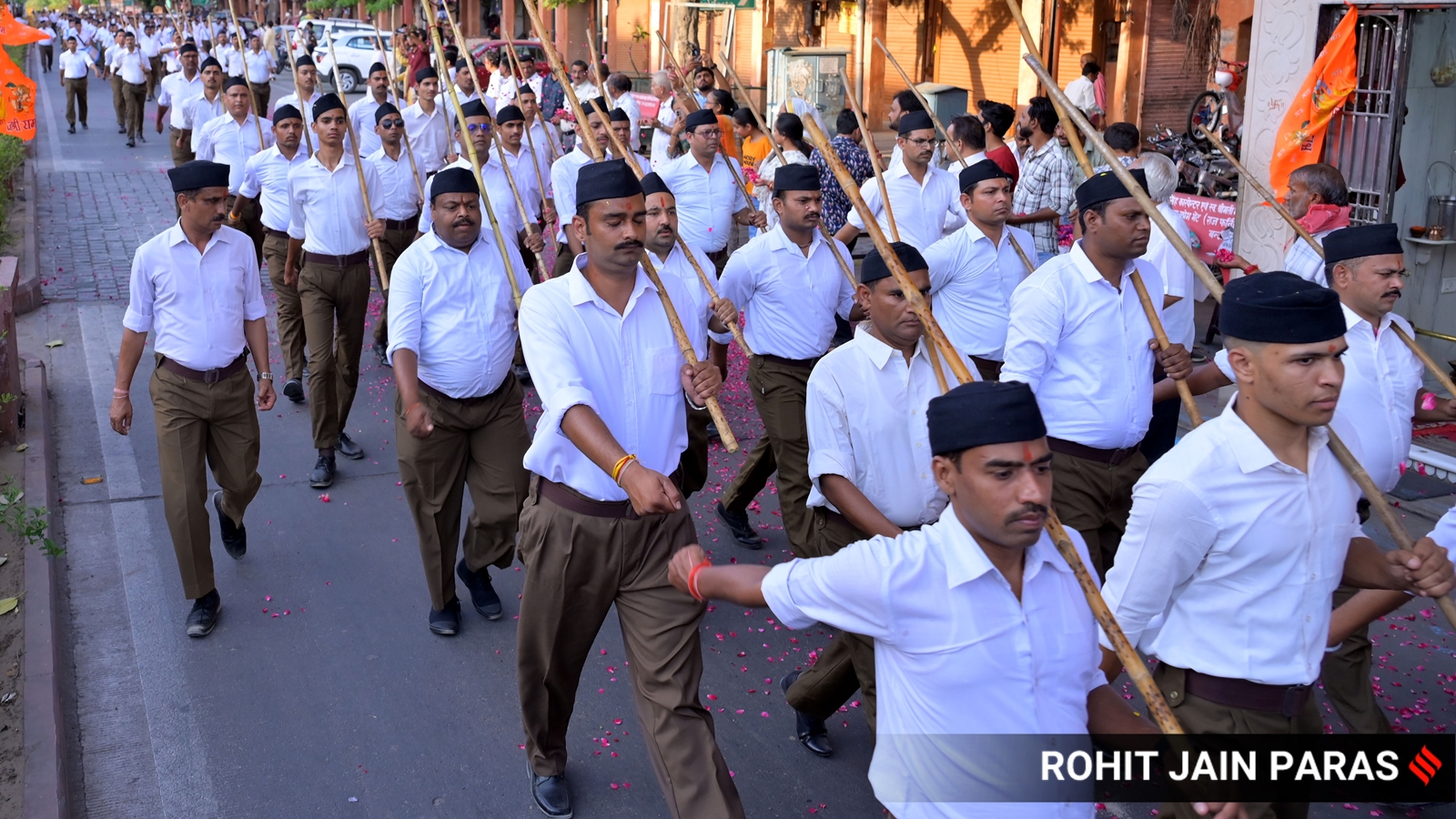
The biggest lie about the RSS is that it is not a “political organisation” and that Hindutva is not a “political ideology”. So, I was not surprised to read (‘Attack on RSS is a self-goal,’ IE, July 3) Rakesh Sinha’s claim that “Hindutva is not a political ideology”.
The RSS was started as an organisation in 1925 by K B Hedgewar, with the political purpose of uniting Hindus. In his understanding, Hindus in India had been subjugated for a thousand years because they were not socially and politically united, fragmented into different castes and sub-castes, and regions and kingdoms. The fact is that the Muslim and Christian invasions were not a religious project but a political one. Muslim invaders came to India not to convert Hindus but to create empires. If conversion had been their goal, then India would have been a Muslim country long back — like other countries in the Middle East and East Asia.
History suggests that Hindus converted to Islam because the oppressed classes in India were not treated equally, were socially ostracised and accorded worse-than-human status. Islam arose as an egalitarian religion and was willing to treat India’s oppressed classes as equals. It is also true that a few Hindus changed their religion due to the influence of Muslim Sufi saints.
If the RSS was the social organisation it claims to be, it should have launched a movement to free India from its social evils like the caste system. It has never shown any intent to launch any social reform movements. Unlike Babasaheb Ambedkar and Gandhi, it never fought for the rights of the Dalits. Its endeavour had always been to fight Islam and Christianity, politically.
If the RSS is not a political organisation then why did it openly criticise the Constitution? It did so when it was adopted by the Constituent Assembly for not being Bhartiya in intent or content. To fight the hegemony of the Congress, which was opposed to the RSS ideology, it created a political party in 1951 called Bharatiya Jana Sangh.
Deendayal Upadhyaya and other RSS Pracharaks were asked to help Syama Prasad Mookerji to create the Jana Sangh. Upadhyaya went on to become its president. He later propounded the theory of Integral Humanism, which is a political document to convert India into a “Dharma Rajya”. In his thesis of “Dharma Rajya”, it is not people and the Parliament who should be sovereign but “Dharma” that should be supreme. And if one person is with “Dharma”, he should prevail. This is a dangerous proposition.
Rakesh Sinha should know that Integral Humanism in its content rejects parliamentary democracy. Though Upadhyaya denies that “Dharma Rajya” is a theocratic state, he does not elaborate on how a government would be run according to “Dharma”. Who will decide what is in accordance with “Dharma”? Did he mean to create an “Iranian model of governance” in which a supreme council of clerics continuously monitors if the government is run according to Muslim laws?

The BJP adopted “Integral Humanism” as its official ideology in 1985. Sinha who was with the RSS and is now a BJP MP, should explain his position on the matter.
If he believes in Integral Humanism, then his statement is false and misleading when he writes that “Rahul Gandhi and his allies can’t make the people believe that the RSS is the enemy of democracy”. What Integral Humanism preaches is anything but democracy.
Sinha should also explain if RSS believes in Non-Violence like Gandhi did. In his article, he writes in the context of Rahul’s speech in the Parliament: “He (Rahul) has linked Hindutva with violence.” As I understand, the RSS believes that Hindus were ruled by the Muslim and Christian invaders because Hindus were weakened by “ahimsa”, which is an integral part of Hindu philosophy. It is, unfortunately, called a “perverted virtue” by V D Savarkar. None other than Sardar Patel, who has been adopted by the BJP as one of its icons, had accused the RSS of using violence.
He wrote in his letter to M S Golwalkar on September 11, 1948: “Organising the Hindus and helping them is one thing but going in for revenge for its sufferings on innocent and helpless men, women and children is quite another thing… All their speeches were full of communal poison. It was not necessary to spread poison in order to enthuse the Hindus and organise for their protection. As a final result of the poison the country had to sacrifice the invaluable life of Gandhiji.”
In another letter to Mookerjee, on July 18, 1948, Patel writes, “The activities of the RSS constituted a clear threat to the existence of Government and the state. Our reports show that those activities despite the ban, have not died down. Indeed, as the time has marched on, the RSS circles are becoming more defiant and are indulging in their subversive activities in an increasing manner.”
Sinha should know that the RSS has enough skeletons in its cupboard. Any attempt to hide and deceive will only boomerang. Ideologies must move with time and should admit their mistakes. Enlightened leadership respects the verdicts of history and people.
The writer, a former member of AAP, is co-founder of SatyaHindi and author of Hindu Rashtra
© The Indian Express Pvt Ltd
First uploaded on: 07-07-2024 at 15:53 IST
Busting the myth: RSS is indeed a political organisation #Busting #myth #RSS #political #organisation

Source Link: https://indianexpress.com/article/opinion/columns/rss-political-organisation-9438251/lite/
WP8, Busting, myth, organisation, political, RSS – Busting the myth: RSS is indeed a political organisation – #WP8
The biggest lie about the RSS is that it is not a “political organisation” and that Hindutva is not a “political ideology”. So, I was not surprised to read (‘Attack on RSS is a self-goal,’ IE, July 3) Rakesh Sinha’s claim that “Hindutva is not a political ideology”. The RSS was started as an organisation …
